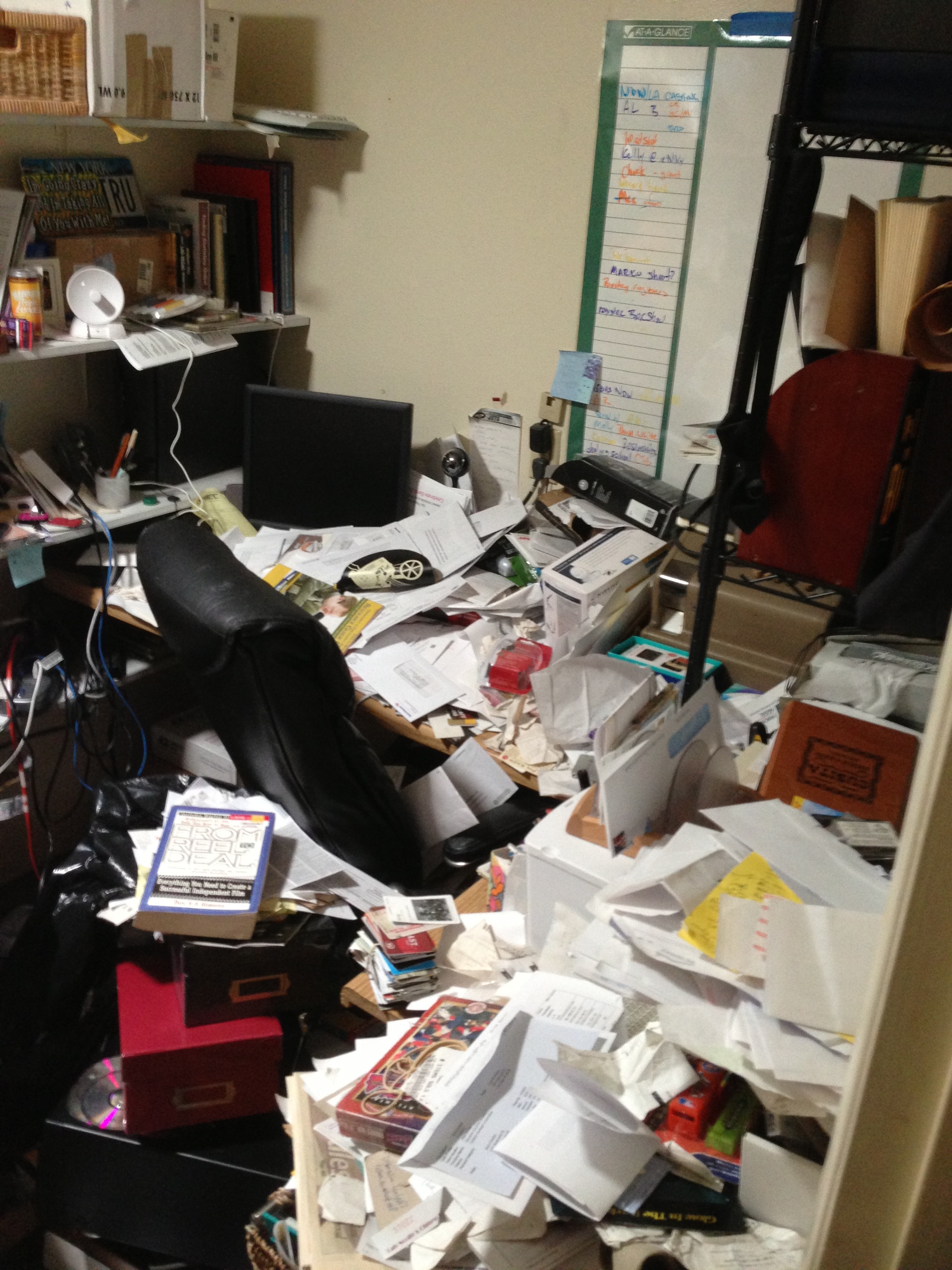by Andrea Goeglein
I suspect being a creative mess is preferable to being a hot mess, but it has taken me a bit to process a recent @Time article written by blogger Eric Barker. Barker asks, “Are you disorganized?” and then summarizes the findings of Steven Johnson’s book, Where Good Ideas Come From. It appears that everything from being disorganized to argumentative and ADD is fodder for the creative mill. I, on the other hand, had been taught that the condition of your environment (home/office) expresses the condition of your mind and your emotional state. I know I ‘feel’ better when things are neat and tidy.
Of course, I have lots of antidotal evidence to support my feelings and belief! I have found that if someone’s work or home environment was neat and organized, the person tended to function in life in that manner. If a person complained of living or working in a cluttered, disorganized environment, my experience of them reflected their assessment of their environment.
Being neat and tidy may help me feel better, but does it block my (and your) creativity? I know when I am blocked in my work or life I want to ‘put things in order’ – be it my to-do list or my closet. It dawned on me after reading Barker’s article that if I am feeling the need to tidy up, I might have been creating a mess while I thought I was blocked!
One of my greatest reflections after reading the article is that my creative process is actually born from the amassing of the clutter which makes me feel uneasy. I then connected a few things. Learning theory and theories on attaining the condition of psychological flow suggest that learning and growth take place because of the tension created in the space between comfort (I know how to do this) and psychological dis-ease (I don’t understand this). It appears that ‘tension’ is created for me when I am disorganized. In the end, being disorganized is actually a precursor to a breakthrough – creatively and/or psychologically.
Dr. Success Challenge: Examine how you relate to clutter. What is happening when your clutter is being created? What happens after you tidy up the clutter?
Thank you Eric Barker! As soon as I organize my day I will be ordering Johnson’s book!
PS: My friend who sent this photo of his office a few years back sent me a more recent, tidier version (which I cannot find — no joke). I need to see what breakthrough he might have had!

